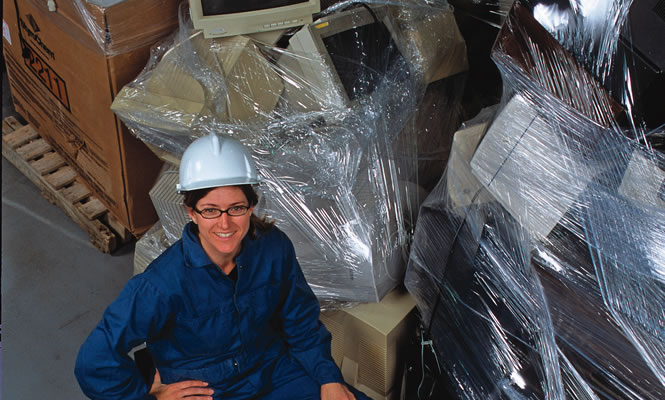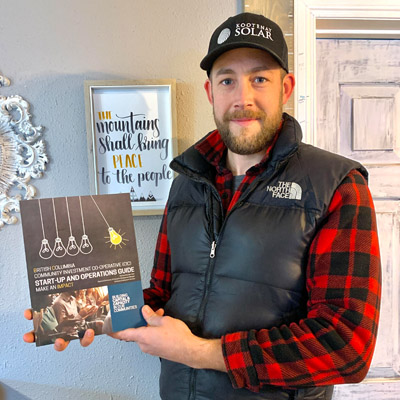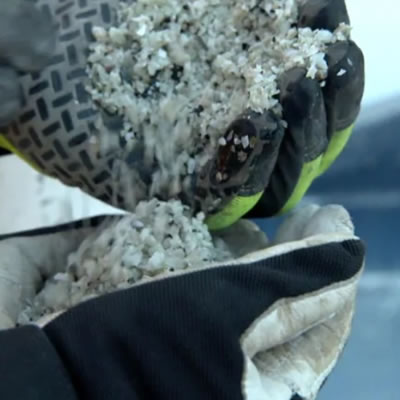Reusing what is not renewable
Teck Trail Operations' e-waste recycling program recovers metals from used electronics for future use

Christa Ford, a senior chemist at Teck Trail Operations, stands beside e-waste that will be recycled. — photo courtesy Teck Trail Operations
In 2007, Environment Canada released a startling statistic: more than 140,000 tonnes of electronics were being sent to landfills in Canada each year. In 2006, Alberta initiated a provincial collection program for its e-waste, and Teck Trail Operations, in conjunction with the Ministry of Environment, started an e-waste recycling program, recovering and extracting usable metals from discarded electronics. Currently, Teck Trail Operations recycles e-waste from B.C., Alberta and Saskatchewan.
Giving metal a second chance at life
Christa Ford, a senior chemist at Teck Trail Operations, said that consumers are replacing electronics such as iPads, computers and televisions at a quicker rate these days because of the advances in technology and people’s desire to have the latest and greatest product. Teck Trail Operations has stepped up to the plate, and since the program started in 2006, Teck has processed over 40,000 tonnes of e-waste, with expectations of hitting 50,000 tonnes in 2011. This process reclaims metals in urban ore and recovers lead from CRT glass (generally found in TVs), putting it back into metal form at the lead smelter—and the process has proven to be environmentally sound.
“As part of the development of the (e-waste recycling program), we had a yearlong environmental testing campaign in consultation with the Ministry of Environment,” said Ford. “From May 2006 to May 2007, we had to collect data for processing e-waste and not processing e-waste and compare the results, looking for potential pollution. Our results (from) processing or not processing were pretty much the same, so that shows that our process is very effective and is a very environmentally safe manner of destroying or combusting e-waste safely.”
Taking extra strides
Catherine Adair, the community engagement co-ordinator at Teck Trail Operations, said that Teck also recycles the packaging materials used to ship the e-waste.
“After reusing the wooden pallets as many times as possible, they are then chipped and sent to Zelstoff-Celgar to be used as an energy source in their co-generation plant,” said Adair. “Shrink wrap, computer batteries, ink and toner cartridges are all recycled as well. We now either reuse or recycle over 99 per cent of the packing material, preventing it from ending up in the landfill.”
Encorp Pacific Canada collects e-waste items to be recycled and has various locations across Canada—in B.C.'s Kootenay/Boundary region, Encorp has depots in Trail, Grand Forks, Nelson, Cranbrook, Fernie and Creston. People can drop off their e-waste at one of the depots; from there it make its way to Teck Trail Operations to be recycled.




